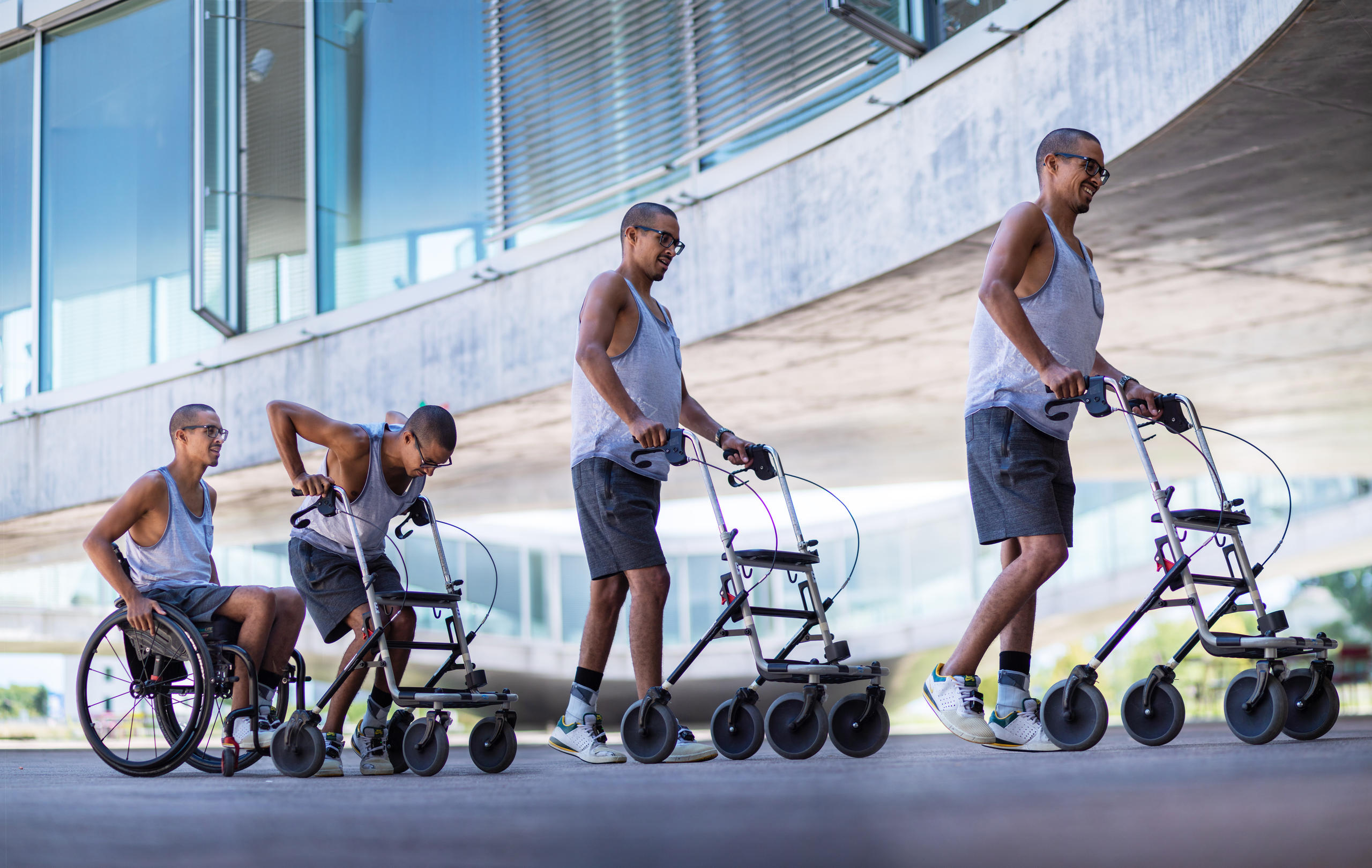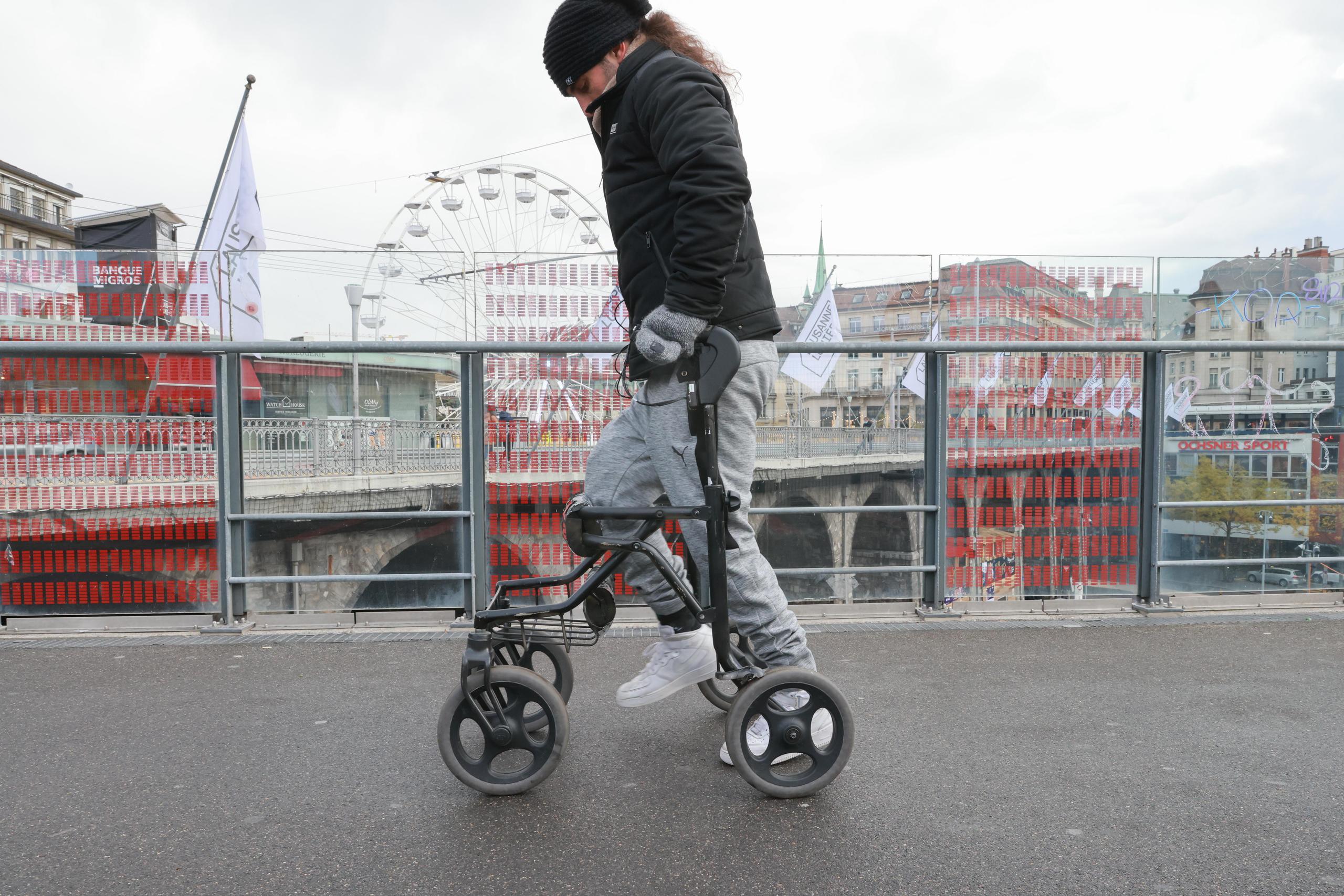
Swiss researchers identify neurons that restore walking after paralysis

A study by Lausanne-based scientists has identified the neurons that may help to improve walking ability post-paralysis.
Research carried out for several years with a group of patients with lower body paralysis, led by Grégoire Courtine of the Federal Institute of Technology Lausanne (EPFL) and Jocelyne Bloch of the Vaud University Hospital Center (CHUV), has shown that targeted electrical stimulation to the injured area of the spine has allowed the patients to regain some mobility.
In a new study published in NatureExternal link journal, the scientists show not only that this therapy was effective in the nine patients, but that after rehabilitation, the improvement in motor skills persists even without further electrical stimulation.
This neurological recovery suggests a regrowth and reorganisation of the nerve fibres involved in walking. To better understand the process, the scientists studied the underlying mechanisms of this recovery in mice. This allowed them to identify a surprising property in a family of neurons expressing the Vsx2 gene: while these neurons aren’t necessary for walking in healthy mice, they were essential for the recovery of motor function after spinal cord injury.
“We have for the first time been able to establish a molecular atlas of the spinal cord with such precision that it allows us to observe, neuron by neuron, the evolution of the healing process,” said Courtine, professor of neurosciences at EPFL and co-director of the NeuroRestore centreExternal link.
Vsx2 neuron
The researchers showed that stimulation of the spinal cord activates the Vsx2 neuron, and that the importance of these neurons increases with the recovery process.

More
Nerve-stimulation device helps paralysed patients walk, cycle and swim
Vsx2 is not very active in a healthy person. But after a spinal cord injury, “it’s complete chaos”, Bloch, a neurosurgeon at CHUV and co-author of the research, toldExternal link Swiss public radio RTS. “All the cells start talking at the same time. And they are no longer able to deliver a concrete action”, such as moving the leg, she said.
During a patient’s recovery, Vsx2 acts like an orchestra conductor, dominating other neurons and helping with control of the brain and the legs. The more a patient recovers, the more the neuron becomes active.
“This opens up even more targeted therapeutic opportunities for us; we aim to manipulate these neurons to regenerate spinal cord injuries,” said Jordan Squair from NeuroRestore.

In compliance with the JTI standards
More: SWI swissinfo.ch certified by the Journalism Trust Initiative
















![The four-metre-long painting "Sonntag der Bergbauern" [Sunday of the Mountain Farmers, 1923-24/26] had to be removed by a crane from the German Chancellery in Berlin for the exhibition in Bern.](https://www.swissinfo.ch/content/wp-content/uploads/sites/13/2025/12/01_Pressebild_KirchnerxKirchner.jpg?ver=bb19e376)














You can find an overview of ongoing debates with our journalists here . Please join us!
If you want to start a conversation about a topic raised in this article or want to report factual errors, email us at english@swissinfo.ch.